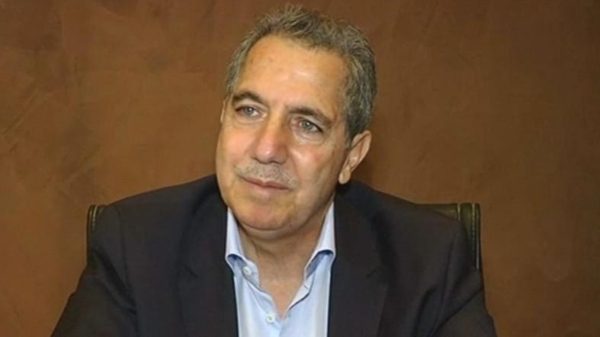
Caretaker Finance Minister Ghazi Wazni was quoted as saying on Tuesday:
“Lebanon can no longer continue with the same pace of subsidies, without giving a timeframe for the changes. “It costs $500 million a month, $6 billion a year. That’s why the government made the decision to rationalize subsidies and reduce them on some items.”
In an interview with Bloomberg , Wazni said that the Central Bank has $ 16 billion remaining in foreign reserves, which is half of what it was a year ago . Only $ 1 billion to $ 1.5 billion can be used to finance support, which is enough for a period of two to three months
Wazni’s comments come amid outrage over the collapse of the Lebanese pound. The pound lost 90 % of its value , trading at about 15,000 per dollar on the black market on Tuesday . The pound has been pegged against the dollar since 1997 at a fixed exchange rate of about 1500 LL to the dollar
The collapse of the currency comes also amid an inflation rate of 84 percent last year, with food inflation hitting an annual 402 % in December.
The Central Bank has stabilized wheat, medicine and fuel prices by providing importers with hard currency at the largely defunct official rate of 1,507 per dollar. It’s also given a preferential exchange rate to importers of 300 basic food and household products, allowing them to buy dollars at 3,900 pounds each. Other goods are financed in a burgeoning black market at greater cost.
Wazni said the government will remove certain products, including cashew nuts and some branded coffees, from the subsidized list partly because they were smuggled abroad for profit. It also plans to gradually increase prices at fuel stations in the coming months, reducing gasoline subsidies to 85 percent from 90 percent.
Subsidies on wheat, medicines and fuel for electricity generation remain for now, Wazni said, according to Bloomberg.
“The decision has been taken to reduce subsidies on the food basket,” he said. “The decision that needs to be taken in the coming weeks is the gasoline. Last month, during the lockdown, we had the same consumption so we think something’s wrong, ” in a possible reference to the smuggling that has been taking place .
Wazni acknowledged the measures would fuel inflation — forecast at 77 percent this year, before accounting for reduced subsidies. To help poorer people cope, Lebanon will introduce cash transfers via prepaid cards under a program approved by Parliament Friday. The government will pay needy families up to 1 million pounds monthly and also secured a $246 million World Bank loan to support 786,000 of the poorest people.
Wazni said the government still planned to devalue the currency as part of a transition to a flexible exchange rate, but wouldn’t take that step without an economic reform program and support from the International Monetary Fund to help restore confidence and anchor the pound.
“We’re going to a flexible exchange rate but we need an IMF program,” he said in the Bloomberg interview.
“The situation is: No dollar inflows, less confidence and political impasse, which means uncertainty because we are fearful of the future as the reserves are declining,” he said. “There are financial, economic and political factors that are playing a role and circumstantial factors that led to the fast deterioration in a few days.”
Lebanon’s worst economic and financial crisis began in late 2019 and was made worse by the pandemic and a massive blast at Beirut’s port in August that killed hundreds and wounded thousands.
Prime Minister Hassan Diab’s government resigned six days after the Aug. 4, blast of nearly 3,000 tons of ammonium nitrate, a highly explosive material used in fertilizer, that killed 211, wounded more than 6,000 and damaged entire neighborhoods.
Former PM Saad Hariri was chosen late October to form a new cabinet to implement the reforms needed to end the financial crisis but so far political bickering and disagreements between him and President Michel Aoun and his son-in-law MP Gebran Bassil prevented him from forming the cabinet . Bassil who according to analysts is the most despised and disliked politician in Lebanon reportedly wants to be the president and for this reason he is trying to force Hariri to give his FPM bloc a veto power in the cabinet to pave the way for him to replace Aoun as president in 2022 . The Iranian backed Hezbollah militant group which currently controls all the branches of government in Lebanon is reportedly backing his plan and for this reason it has done nothing to facilitate the formation of the cabinet .


Leave a Reply
You must be logged in to post a comment.